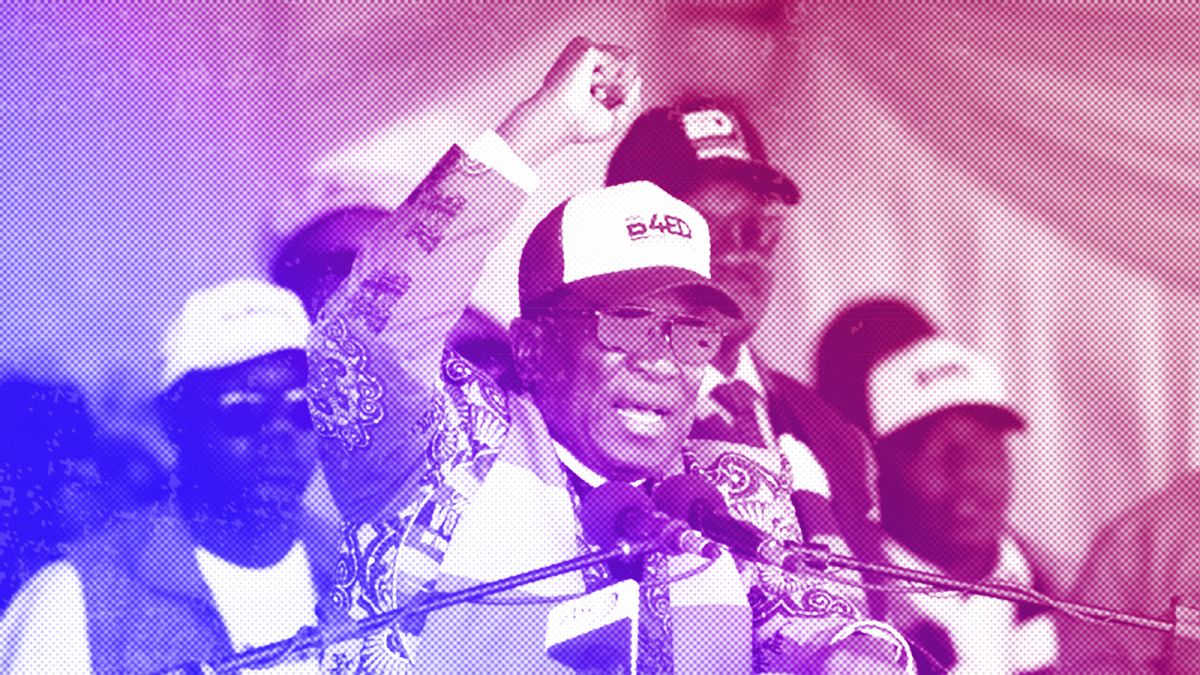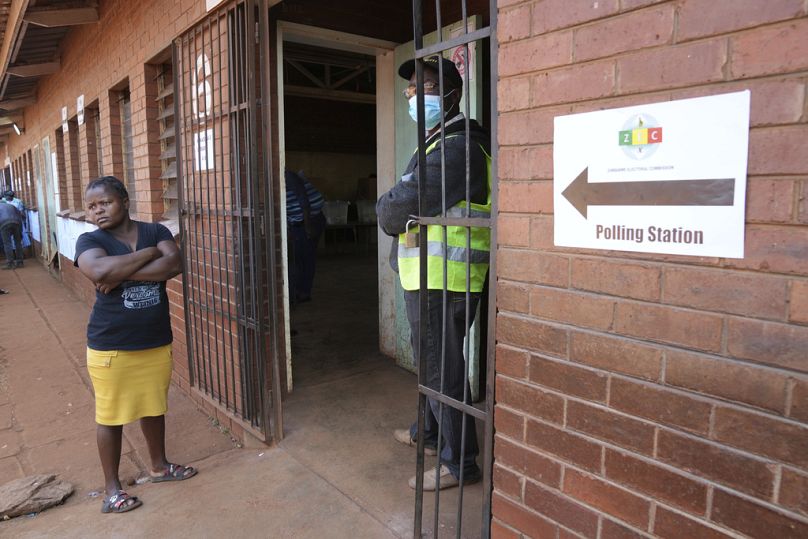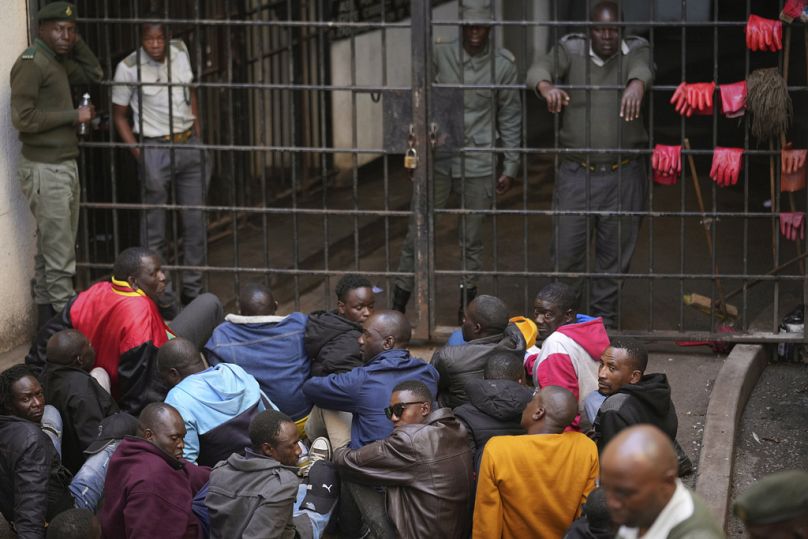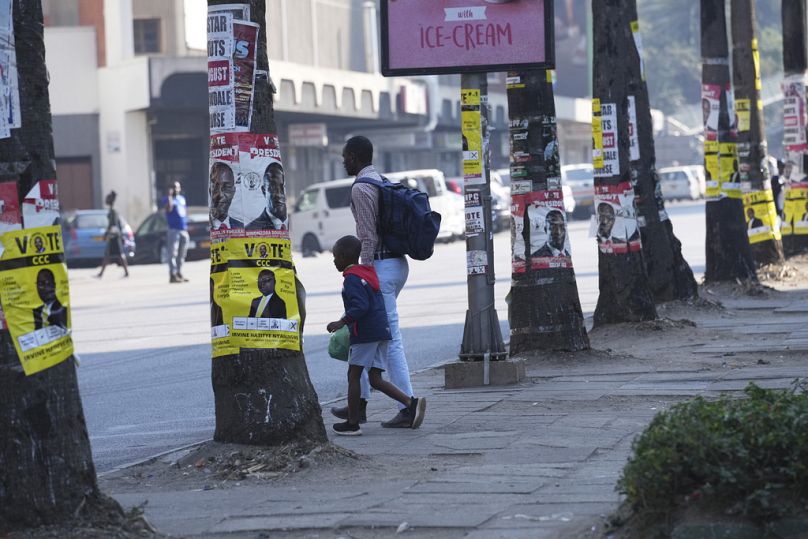It is imperative that the EU, UK, US and other democratic voices help Zimbabwe stand tall and show the rest of Africa that the retreat of democracy is not inevitable, Lord Oates writes.
Long-time observers of Zimbabwe will feel a strong sense of déjà vu ahead of Wednesday’s parliamentary and presidential elections.
An ageing leader is boxed in by an economic crisis. He clings to power in the face of deep unpopularity by clamping down on opposition activists and stifling media freedom.
Fears mount that the president will refuse to leave office even if he is defeated, and will try to steal the election through spreading misinformation and intimidating his political enemies.
When Emmerson Mnangagwa succeeded Robert Mugabe in a palace coup backed by the army six years ago, those who did not know — or chose to ignore — Mnangagwa’s blood-soaked history had high hopes that he would bring political reform.
Instead, democratic space has been further shut down as the president’s repressive rule deepens the suffering of ordinary Zimbabweans.
It's not the first time this is happening
Faced with triple-digit inflation, a sinking currency, and billions of external debt, Mnangagwa can barely pay teachers or nurses, or provide food to almost half of the population living in rural areas who are at risk of hunger.
He has responded to his growing unpopularity by harassing and detaining opposition activists, trade unionists and journalists.
The opposition, Citizens Coalition for Change (CCC), fears a rerun of the last presidential elections, in 2018, when a widely predicted opposition victory crumbled to dust.
Zimbabwe’s politicised electoral commission mysteriously delayed the announcement of the official results for five days.
In this fog of confusion, Zanu-PF were awarded hundreds of thousands more votes than election observers had seen being cast at polling stations.
When voters took to the streets to protest, Mnangagwa’s security forces opened fire on civilians at random, killing six.
This time around, the EU has sent 150 election observers, and the Carter Center in the US has deployed 30 observers to observe polling, counting, and tabulation on election day.
This presence, together with a nationwide system in which volunteers will count the number of votes cast, should make attempts to steal the elections harder.
'Patriotic Law', intimidation and violence
But the opposition have formidable obstacles in their way. Mnangagwa recently imposed the “Patriotic Law”, which threatens anyone who is deemed to be “wilfully injuring the sovereignty and national interest of Zimbabwe” with the death penalty.
This has had a dampening effect on free speech, making opposition politicians and activists fearful of engaging with international media.
Under another new law, NGOs can also be summarily banned, or their leadership replaced, with no recourse to the courts.
The election campaign has been marked by widespread intimidation and violence against opposition supporters, the banning and obstruction of political rallies, and candidates burnt out of their homes.
Recently, an opposition campaigner, Tinashe Chitsunge, was brutally murdered.
The greatest barrier to the election of an alternative government is the capture of the Electoral Commission by Zanu-PF.
It is currently packed with party supporters, run by a retired army general, who has been accused of passing on voter data to Zanu-PF, which they have used to send campaign text messages to voters.
Such information, needless to say, is not available to the opposition. This has been combined with attempts to deregister opposition candidates, fewer polling stations in districts where the opposition are strong, and a state-controlled media that barely offers airtime to the opposition.
The question may be asked: if democracy is under such sustained attack, how can the rest of the world support the Zimbabwean people?
Ignoring the issues won't win friends in Africa
Firstly, we must pressure Western governments not to cave in and legitimise an election that has been stolen.
China is buying up lithium mines in Zimbabwe — the continent’s largest producer of the mineral — to provide components for batteries in electric cars.
It, and other authoritarian states, do so with the advantage that they avoid accusations that they are lecturing Africans on human rights.
The West, which also wants access to these resources, may be tempted to mirror this behaviour.
But this would set a terrible precedent. Zimbabwe and its people cannot live better lives until the rule of law is restored, and free and fair elections can legitimately take place.
Ignoring democratic shortcomings will not win friends for the West in Africa or secure a brighter future for Zimbabweans.
Western countries are understandably nervous about standing in judgement on African politics, given their history of colonialism.
However, ignoring extrajudicial killings, torture, arbitrary arrests, summary trials, censorship, bans on assembly, and obvious vote-rigging by Zanu PF, will not atone for past oppression inflicted under colonial rule.
Democratic voices need to step in
The elections offer hope to millions of Zimbabweans that there might be a brighter future. And there is reason for some optimism.
In neighbouring Zambia, the political opposition recently managed to win and secure a democratic transition.
Such a path exists for Zimbabwe, in the event of a free and fair election bringing about democratic change.
But to help this come about, it is imperative that the EU, UK, US and other democratic voices, offer a swift plan to ease some of the country’s international debt burdens and help with the democratic transition.
By doing so, they can help Zimbabwe stand tall and show the rest of Africa that the retreat of democracy is not inevitable.
Lord Oates is a member of the UK House of Lords and Co-Chair of the All-Party Parliamentary Group on Zimbabwe. He taught in rural Zimbabwe in the late 1980s.
At Euronews, we believe all views matter. Contact us at view@euronews.com to send pitches or submissions and be part of the conversation.



